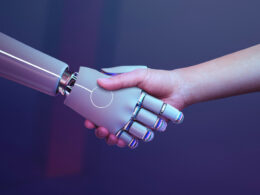The Health Institute
research and strategy institute for
in-person health strategy and
digital health strategy
Joaquim Cardoso MSc
Chief Research and Editor —
of the The Health Institute — Knowledge Portal
Chief Strategy Officer (CSO) —
of the The Health Institute — Research and Strategy
Senior Advisor — for Boards and C-Level
July 5, 2023
Nvidia is building an AI-powered “digital twin” called Earth-2 that can predict weather more accurately and faster than current methods, helping in extreme weather events.
- AI models like FourCastNet can generate thousands of weather predictions, improving the accuracy of rare but deadly disasters and giving vulnerable populations time to prepare and evacuate.
- AI has already made significant contributions to science, such as identifying antibiotics for drug-resistant pathogens and controlling plasma in nuclear fusion reactions.
AI can revolutionize the scientific process by transforming literature reviews, formulating stronger hypotheses, conducting experiments faster and at a larger scale, and interpreting results.
- Self-driving labs, combining robotics and AI, can automate experiments and provide recommendations for further research, making the scientific process more efficient.
- AI tools can lower barriers to entry for new scientists and open opportunities for nontraditional talent in the field.
- While AI has incredible potential, it is important to recognize the limitations and potential biases of current AI models.
OpenAI and DeepMind have made significant breakthroughs in AI research, but academia also plays a crucial role in refining models and addressing complex problems.
- AI can contribute to replicability and trust in science by lowering the cost and effort of running experiments and making results easier to replicate or fail to replicate.
- Transparency in science, including open access to articles, data, code, and models, is crucial for building trust, although there may be limitations for certain models due to risks.
Regulation is essential to address the limitations, risks, and ethical implications of AI, ensuring it is used responsibly and for the benefit of society.
This is an Executive Summary of the Article “This is how AI will transform how science gets done”, published by MIT Technology Review.
Click below to read the full version:
Originally published at https://www.technologyreview.com.
BIO: Eric Schmidt was the CEO of Google from 2001 to 2011. He is currently co-Founder of Schmidt Futures, a philanthropic initiative that bets early on exceptional people making the world better, applying science and technology, and bringing people together across fields.











